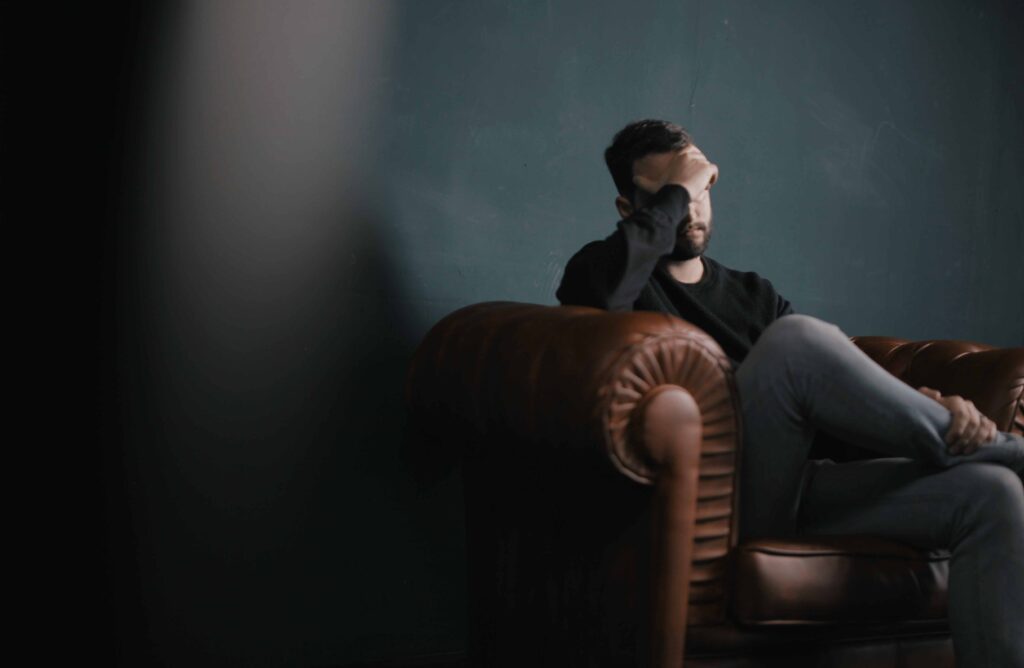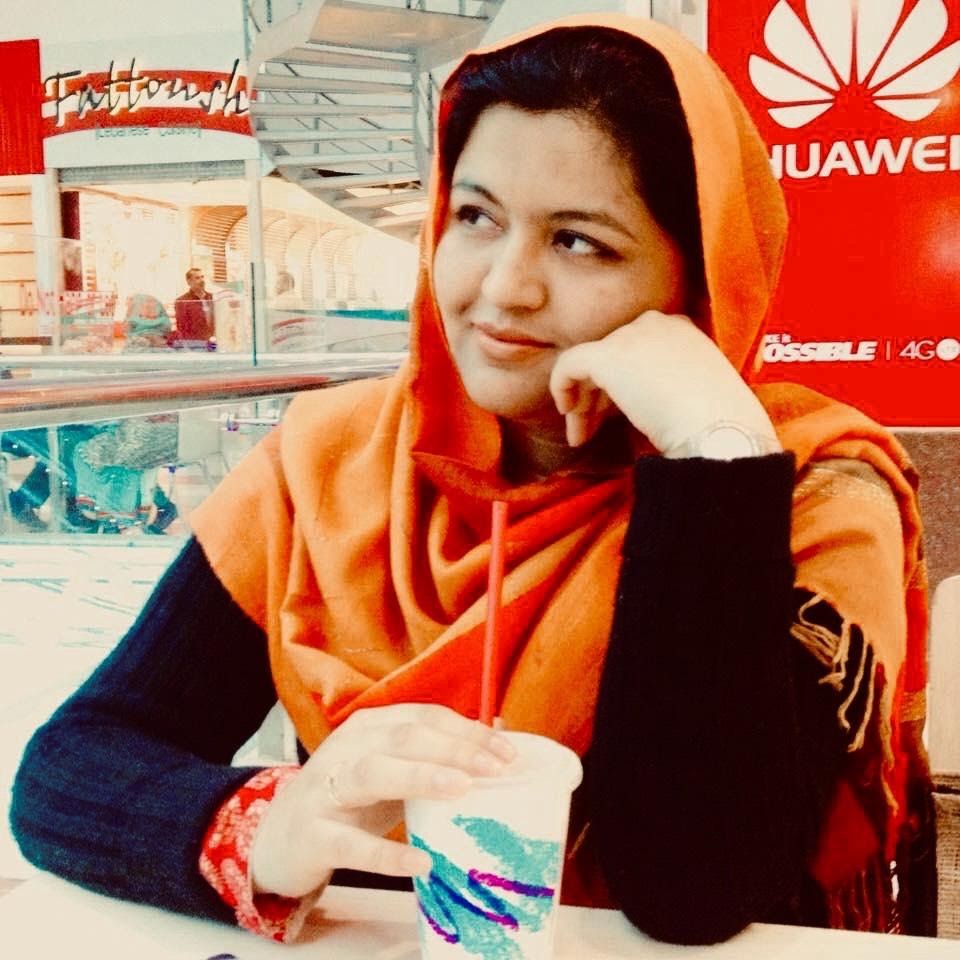My heart was pounding in my throat and mouth was dry. I was clenching the stool I sat on to keep myself steady. The ruckus outside was getting nearer to the door. The next second it barged open and a woman was dragged in by three attendants. She was screaming and thrashing about to free herself. Her hair was flying about, her clothes disheveled and feet bare. She managed to free herself from entering the room and lay on the floor banging her head on the floor. She tore at her clothes and hair and screamed. It was hard to tell whether she was laughing or crying. Every nerve in my body was strained and telling me to get up and run. Run out of the room, out of the psychiatric ward and out of the hospital.
‘This is what everyone warned you about. Everyone told you not to become a psychologist, a doctor for the mad. This, right here on the floor, this in the madness they were talking about.’
I didn’t run however and braved it out. I actually went back and completed my internship with a well-known psychiatrist. He became my mentor and I learned a lot from him. The most important decision I made though, was not to pursue a career in clinical psychology.
The first thing people assume when they find out I’m a psychologist is that I will read their minds and faces, judge their personality and have a cure for all their problems. This image has been further reinforced by social media which is full of ‘psychological’ quizzes and tests which claim to tell you about your personality. This wrong picture of psychology has been created because people don’t really understand what the subject is. Students who choose to study the subject don’t understand it either. They expect to learn some sort of hocus pocus and are disappointed by the boring material they are actually taught.
When I chose Applied Psychology as an elective subject in my bachelor’s, I was also one of these naïve students. My passion was English Literature and this was the best combination of subjects available. Later on, I chose to my masters and then MPhil in Psychology and fortunately got admission to the National Institute of Psychology, QAU. The reason for this was my genuine interest in the subject once I found out what it really was. I loved literature because of the insight it gave into human nature and experience. Here was a subject purely devoted to studying the mental processes and behavior of humans.
The intricacies of our mind, our personality, our lifespan development, our social interaction all were investigated scientifically. The complicated mental processes like thinking, reasoning, and problem-solving and dreaming which help us function but which we don’t even consciously notice are all studied. The way every human being has the same basic biology and processes and yet is a unique individual because of his perception of environmental factors amazed me. It was a deep subject with such a diversity of fields that it became difficult for me to choose which one to pursue.
Our Master’s program required an internship report in the final semester and thus did I end up in that psychiatric ward where my first day was full of so much drama. The patient who I later found out was suffering from conversion disorder was the prototype of mental illness in Pakistan.

There were many more patients I saw during those months who were evidence of how distorted mental processes and behavior could affect our normal functioning. This branch of psychology is the most well-known also attracted me. How human nature could go wrong was a question with unlimited answers. After seeing all sorts of patients with a variety of disorders I decided that attractive as it was, a career in clinical psychology was not what I wanted at that time. There was a lot of ground to cover before I could have a successful and satisfying career in this country.
One reason was the lack of awareness among the public of who a clinical psychologist actually was. Patients would refer to me as ‘Doctor Sahiba’ because I was sitting with the psychiatrist who was obviously a medical doctor. I had to explain that I was not a doctor nor could I prescribe medication for them. What I could offer was therapy but that only meant talking and no treatment.
I watched as the Doctor would deal with complex patients by the dozen and treat their symptoms as the common cold writing medicines off on his pad. The ‘patient lying on a sofa and psychologist sitting beside them holding a clipboard’ image I had of lengthy therapy sessions where childhoods were discussed and the unconscious explored were nowhere in this setting. I once asked the psychiatrist if these patients would actually be treated with medication. He assured me that these patients came to him expecting to be treated with drugs and so they would be.
This led me to reflect upon the society’s understanding of mental health and disorders. For our society, there was nothing wrong with them apart from the physical pain they felt or the uncomfortable sensations they had like palpitations, insomnia, drug addiction or sexual dysfunction. This last complaint was the most sensitive and hardest for men to report especially in front of the females in the room. Women never reported this symptom probably because they didn’t recognize it themselves. Furthermore, most of these patients didn’t come on their own but were referred by another department and came as a last resort.
Thus, mental health problems are translated into physical complaints and then a visit to the doctor is seen as necessary. This lack of awareness and acceptance of mental health issues doesn’t come as a surprise in this culture where non-physical problems and even physical sickness at times are seen from a spiritual or religious perspective. Mood disorders like depression and anxiety disorders like OCD are explained as a straying from the religious path, or a form of punishment for sins committed. Psychotic disorders like schizophrenia are seen as the effect of supernatural elements who can possess a person. In both cases, treatment can be done by religious healers. Visiting shrines and performing rituals for these healers is thus the first option for many patients. Our belief system is so strong that educated, uneducated, rich, poor all categories of people believe in these healers and are actually cured by them. By the time they reach a psychiatrist they have tried these treatments without success and their condition is so chronic that it’s a challenge to treat them. Until people realize that mental health problems are not always caused by religious or spiritual reasons they will never go for proper treatment.
Apart from this lack of awareness, there are causes of mental health problems in our social and cultural setup which cannot be resolved. Authoritative parenting, joint and interdependent family systems with their pressures cause children to grow up with issues like inferiority complexes, insecurity and lack of independence. Forced and repressive marriages from which there is no escape also cause many problems. In a collectivistic society with no room for self-care or growth its natural that mental health issues will occur. Another issue is poverty and unemployment. Lack of productivity in the youth leads to frustration and drug addiction. These issues have no simple solutions. If a patient does reach out to a clinical psychologist who can offer them therapy, there is no support system available for them. Commonly they want their visit to be confidential even from their own family or spouse and so techniques like family counseling are out of the question.
We, therefore, have a long way to go before we can practice clinical psychology in Pakistan. The first step towards mental wellness is the basic awareness of what mental health is. Then we need to know how to take care of it and if illness occurs how to recognize and treat it. Only when we realize and accept that mental illness is a genuine issue caused by genetic, biological, personality or situational factors will we stop blaming patients, labeling and victimizing them. Only when we accept that the patients are not misfit or sinful or evil, they are normal humans with mental health problems, will we be able to break the taboo and provide these patients with the proper help they need. Then we can start dealing with the social issues which foster such issues and build a society of healthy individuals.
Also Read: Five mental disorders that exert influence on youth

Khadija Mazhar has a Mphil degree in Psychology from the National Institute of Psychology, Quaid-e-Azam University, Islamabad. She has worked as a school counselor and a lecturer of Psychology. She lives in Islamabad and currently fulfills her duties as a mother. Her passions include English literature, creative writing, and contemplating nature.

